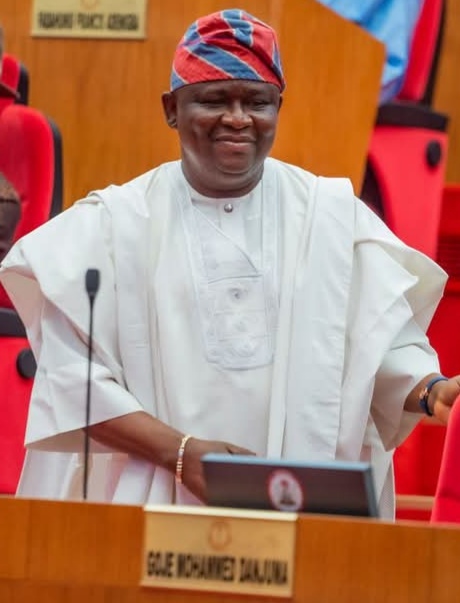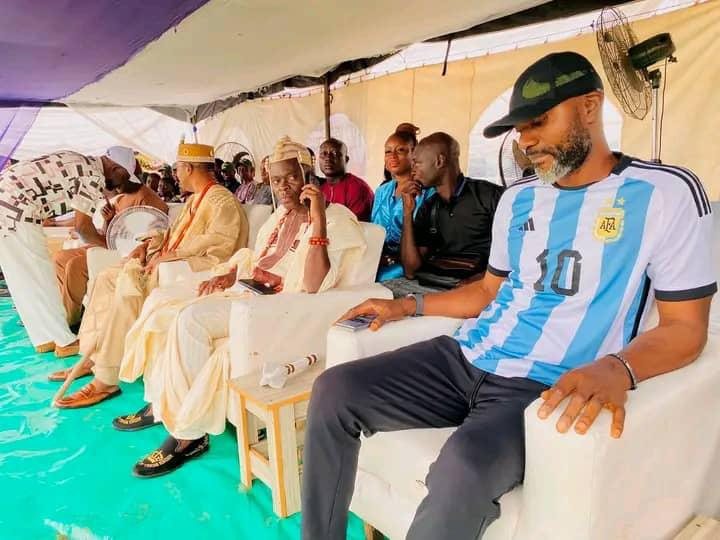KADUNA, Nigeria – August 25, 2025 – The rainy season has ushered in a wave of renewal across Kaduna State, revitalizing farmlands and rekindling hope among farmers who had abandoned their fields due to years of insecurity and economic hardship. Under the leadership of Governor Uba Sani, the state has witnessed a remarkable turnaround, driven by improved security, inclusive governance, and strategic investments in agriculture. Governor Sani has credited non-kinetic approaches—dialogue, trust-building, and inclusion—for restoring peace, while the state’s Commissioner for Agriculture, Murtala Dabo, highlighted a record-breaking 12% budgetary allocation to agriculture in 2025, surpassing the Malabo Declaration benchmark. Programs like Tallafin Noma have empowered over 69,000 smallholder farmers with free inputs, while tractors and solar-powered irrigation pumps have eased production. Despite this progress, a recent attack in Birnin Gwari underscores the fragility of peace, emphasizing the need for sustained efforts to maintain stability. This report provides an in-depth analysis of Kaduna’s agricultural revival, the role of peacebuilding, the economic and social context, and the challenges and opportunities ahead.
A Season of Renewal for Kaduna’s Farmers
The 2025 rainy season has transformed Kaduna State’s rural landscape, bringing lush greenery to fields that had lain fallow for years due to insecurity and economic exclusion. Farmers, once driven away by banditry, kidnappings, and communal clashes, are returning to their lands, buoyed by improved security and government support. This revival is a testament to deliberate policy interventions under Governor Uba Sani’s administration, which has prioritized peacebuilding and agricultural investment as cornerstones of its Renewed Hope Agenda.
Governor Sani, speaking at a recent event celebrating the state’s progress, attributed the restoration of peace to a model that emphasizes non-kinetic approaches. “If not for our religious leaders, we would not be standing here today celebrating peace in Kaduna State,” he said. “Our peace model emphasizes dialogue, trust-building, and inclusion. The people must own the process. They must understand and support it. That’s what makes peace sustainable.” This approach, rooted in community engagement and inclusivity, has enabled farmers to reclaim their fields, boosting agricultural productivity and livelihoods.
The Commissioner for Agriculture, Murtala Dabo, provided further insight into the state’s strategy, highlighting a significant increase in budgetary allocations to agriculture. “Collectively, the budgetary allocations to agricultural activities have pushed the allocation to over 12 percent of the 2025 budget, making Kaduna the only subnational to meet and exceed the Malabo Declaration benchmark,” he explained. The Malabo Declaration, adopted by African Union member states in 2014, commits governments to allocating at least 10% of their budgets to agriculture to achieve food security and economic growth. Kaduna’s achievement positions it as a leader in agricultural investment among Nigeria’s 36 states.
The Tallafin Noma program, a flagship initiative, has been instrumental in this revival. Over 69,000 smallholder farmers have received free improved seeds, fertilizers, and agrochemicals, enabling them to cultivate crops like maize, rice, and ginger. The state has also provided tractors and solar-powered irrigation pumps to mechanize farming and improve water access, addressing longstanding barriers to productivity. These interventions have not only boosted yields but also restored confidence among farmers, encouraging them to return to their lands.
Voices from the Field: Farmers’ Perspectives
The impact of these initiatives is evident in the experiences of farmers like Danladi George, a smallholder in Jaba Local Government Area, who shared his story in an exclusive interview with Nigerian NewsDirect. “Last year, insecurity kept many of us away from our farms, and a pandemic devastated our ginger,” he said. “But this year, the insecurity has reduced, and the free fertilizer distribution has encouraged us to cultivate more. Things are improving seriously.” George’s testimony reflects a broader trend of renewed optimism in rural communities, where farmers are reclaiming their livelihoods.
The reduction in insecurity has been a game-changer. Kaduna, once a hotspot for banditry, kidnappings, and communal violence, particularly in areas like Birnin Gwari and Zangon Kataf, has seen significant improvements in security under Governor Sani’s administration. The involvement of religious and community leaders has been critical, as noted by John Joseph Hayab, Chairman of the Christian Association of Nigeria (CAN) in the 19 northern states and the Federal Capital Territory. “Insecurity, mutual suspicion, and religious tension once defined Kaduna’s image,” Hayab said. “But today, we are witnessing significant progress under Governor Uba Sani, who has shown deliberate commitment to healing and inclusiveness.”
Hayab emphasized the role of clerics in peacebuilding, noting that their involvement has encouraged farmers to return to their fields. However, he cautioned that “peacebuilding is not an event; it is a continuous process,” highlighting the need for sustained efforts to maintain stability. The collaboration between the government, religious leaders, and communities has created a sense of ownership, fostering trust and encouraging agricultural activity.
A Difficult History: The Legacy of Insecurity
Kaduna’s agricultural revival must be understood against the backdrop of a challenging history. For over a decade, the state grappled with rampant insecurity, particularly in rural areas like Birnin Gwari, Giwa, and Igabi. Banditry, kidnappings, and communal clashes forced thousands of farmers to abandon their lands, leading to food shortages and economic distress. In 2024, former Sokoto State Governor Attahiru Bafarawa revealed that he had abandoned his 10,000-hectare farm in Birnin Gwari for over a decade due to banditry, a stark illustration of the crisis’s impact.
The insecurity not only disrupted agriculture but also traumatized communities, eroded trust, and deepened poverty. The World Bank estimates that 38.9% of Nigerians live below the poverty line, with rural areas like Kaduna’s hinterlands particularly affected. The 2023 ginger pandemic, which decimated crops, compounded these challenges, leaving farmers like Danladi George in financial ruin.
Governor Sani’s administration has made significant strides in addressing these issues, leveraging non-kinetic strategies like dialogue and community engagement. The state’s peace model, which involves religious leaders, traditional rulers, and youth groups, has reduced incidents of violence and created a safer environment for farming. However, a recent attack on August 19, 2025, in the Kakangi area of Birnin Gwari, where suspected bandits killed five farmers and injured others, serves as a sobering reminder of the fragility of peace. The incident, which followed months of relative calm, underscores the need for sustained vigilance and investment in security.
Economic and Social Context
Kaduna’s agricultural revival is unfolding within a challenging economic and social context. The National Bureau of Statistics (NBS) reported a headline inflation rate of 21.88% in July 2025, driven by a 22.74% food inflation rate, making staples like yam, rice, and beans unaffordable for many households. The naira’s 41.4% depreciation in 2024 has increased the cost of imported agricultural inputs, such as fertilizers and machinery, while the Central Bank of Nigeria’s (CBN) 26.75% Monetary Policy Rate has raised borrowing costs, limiting farmers’ access to credit.
Socially, Kaduna faces significant challenges. The state’s population of approximately 8.9 million includes a diverse mix of ethnic and religious groups, which have historically been sources of tension. The 30% out-of-school rate among children in North-Central Nigeria (UNICEF, 2023) and a maternal mortality rate of 576 per 100,000 live births highlight the need for investments in education and healthcare. Rural communities, which rely heavily on agriculture, are particularly vulnerable to poverty and insecurity, making the revival of farming critical for social stability.
The Federal Government’s Renewed Hope Agenda, launched by President Bola Ahmed Tinubu in 2023, emphasizes economic diversification, job creation, and inclusive growth. Kaduna’s focus on agriculture and peacebuilding aligns with this agenda, positioning the state as a model for other subnationals. The 12% budgetary allocation to agriculture, surpassing the Malabo Declaration’s 10% benchmark, reflects a strategic commitment to leveraging farming as a driver of economic and social progress.
The Tallafin Noma Program: Empowering Smallholder Farmers
The Tallafin Noma program, meaning “Farmer’s Support” in Hausa, is a cornerstone of Kaduna’s agricultural revival. Launched to support smallholder farmers, who constitute over 80% of Nigeria’s agricultural workforce, the program has provided over 69,000 farmers with free improved seeds, fertilizers, and agrochemicals. These inputs have boosted yields and reduced the financial burden on farmers, many of whom struggled to recover from the 2023 ginger pandemic and years of insecurity.
The state has also invested in mechanization, providing tractors to ease land preparation and solar-powered irrigation pumps to address water scarcity during dry seasons. These interventions have enabled farmers to cultivate larger areas and diversify crops, enhancing food security and income. “The solar pumps have been a game-changer,” said Amina Suleiman, a farmer in Giwa LGA. “We can now farm year-round, not just during the rains.”
The program’s success is evident in the increased agricultural activity across Kaduna’s 23 local government areas. Farmers are cultivating crops like maize, rice, sorghum, and soybeans, with ginger production rebounding after last year’s losses. The improved supply of farm produce has stabilized local markets, reducing food prices in some areas and easing the burden of 22.74% food inflation.
Peacebuilding: The Role of Inclusive Governance
Governor Sani’s non-kinetic approach to peacebuilding has been a critical factor in Kaduna’s agricultural revival. By prioritizing dialogue, trust-building, and inclusion, the administration has addressed the root causes of insecurity, such as injustice and economic exclusion. “Insecurity is fuelled by injustice and economic exclusion,” Sani said. “Our peace model ensures that the people own the process, making it sustainable.”
The involvement of religious leaders has been particularly impactful. John Joseph Hayab of CAN highlighted the role of clerics in mediating conflicts and fostering trust. “The governor’s commitment to inclusiveness has brought communities together,” he said. “Clerics have encouraged people to return to their farms, knowing that peace is taking root.” Traditional rulers and youth groups have also played key roles, participating in dialogue sessions and community policing initiatives.
The state’s peace model includes early engagement with community leaders, intelligence sharing with security agencies, and enforcement of dialogue agreements. These efforts have reduced incidents of banditry and communal clashes, creating a safer environment for farming. However, the August 19 attack in Birnin Gwari underscores the need for continued vigilance. Swift responses to such incidents, including increased security patrols and community engagement, are essential to prevent escalations and maintain farmer confidence.
Stakeholder Reactions
The agricultural revival and peacebuilding efforts in Kaduna have elicited widespread praise from stakeholders. Agricultural economist Dr. Amina Mohammed described the state’s approach as a “model for Nigeria.” “Kaduna’s investment in agriculture and peacebuilding shows how subnationals can drive development,” she said. “The Tallafin Noma program is empowering farmers and boosting food security.”
Farmers’ associations expressed gratitude for the government’s support. “The free fertilizers and solar pumps have changed our lives,” said Yusuf Abdullahi, a farmer in Igabi LGA. “We can now feed our families and sell surplus crops.” Religious leaders, including Imam Musa Ibrahim of the Jama’atu Nasril Islam (JNI), commended the inclusive approach. “The government’s engagement with clerics has bridged divides,” he said.
However, some stakeholders cautioned against complacency. “The Birnin Gwari attack shows that peace is fragile,” said security analyst Chinedu Okeke. “The government must strengthen intelligence and protect farming routes.” Civil society groups, such as the Kaduna Peace Network, called for greater investment in rural infrastructure, like roads and storage facilities, to sustain agricultural gains.
Implications for Kaduna and Nigeria
Kaduna’s agricultural revival has significant implications for the state and Nigeria. For Kaduna, the return of farmers to their fields could boost agricultural output, reduce poverty, and stabilize local markets. The sector employs over 70% of the state’s workforce, making it a critical driver of economic growth. Increased crop production could also reduce Nigeria’s $10 billion annual food import bill, enhancing food security.
Nationally, Kaduna’s model of peacebuilding and agricultural investment offers lessons for other states grappling with insecurity and economic challenges. By prioritizing non-kinetic approaches and inclusive governance, states can address the root causes of conflict and create enabling environments for development. The 12% budgetary allocation to agriculture sets a precedent for meeting the Malabo Declaration, encouraging other subnationals to prioritize the sector.
The revival also aligns with global development goals, including SDG 2 (Zero Hunger) and SDG 16 (Peace, Justice, and Strong Institutions). By fostering peace and agricultural productivity, Kaduna can attract foreign investment, particularly in agribusiness and value chains, supporting Nigeria’s economic diversification efforts.
Challenges and Opportunities
Kaduna’s progress faces several challenges:
Fragile Peace: Isolated attacks, like the one in Birnin Gwari, highlight the need for sustained security measures to protect farmers.
Economic Pressures: High inflation (21.88%) and naira depreciation (41.4%) increase input costs, necessitating subsidies and affordable credit.
Infrastructure Gaps: Poor rural roads and storage facilities limit market access, requiring investment in logistics.
Climate Risks: Erratic rainfall and climate change threaten yields, underscoring the need for climate-smart agriculture.
Opportunities include job creation, with agriculture employing millions, and export potential for crops like ginger and soybeans. The Tallafin Noma program can be scaled to reach more farmers, while partnerships with private sector players, like Dangote Group, can enhance value chains.
Policy Recommendations
To sustain Kaduna’s agricultural revival, the following recommendations are proposed:
Strengthen Security: Deploy additional patrols and surveillance to protect farming routes, particularly during planting and harvest seasons.
Expand Tallafin Noma: Increase funding and coverage to reach more farmers, focusing on women and youth.
Invest in Infrastructure: Build rural roads and storage facilities to improve market access and reduce post-harvest losses.
Promote Climate Resilience: Adopt climate-smart practices, such as drought-resistant crops and irrigation, to mitigate climate risks.
Enhance Community Engagement: Deepen dialogue with religious and traditional leaders to sustain peace and trust.
Conclusion
Kaduna State’s agricultural revival, fueled by improved security, inclusive governance, and strategic investments like the Tallafin Noma program, has rekindled hope among farmers and revitalized rural communities. Governor Uba Sani’s non-kinetic peace model, supported by religious leaders and community engagement, has created a safer environment for farming, while a 12% budgetary allocation to agriculture has empowered over 69,000 farmers. Despite challenges like isolated attacks and economic pressures, the state’s progress offers a model for Nigeria’s 36 states. By sustaining peace, scaling agricultural support, and addressing infrastructure and climate risks, Kaduna can cement its position as a leader in agricultural development, driving inclusive growth and economic resilience.





